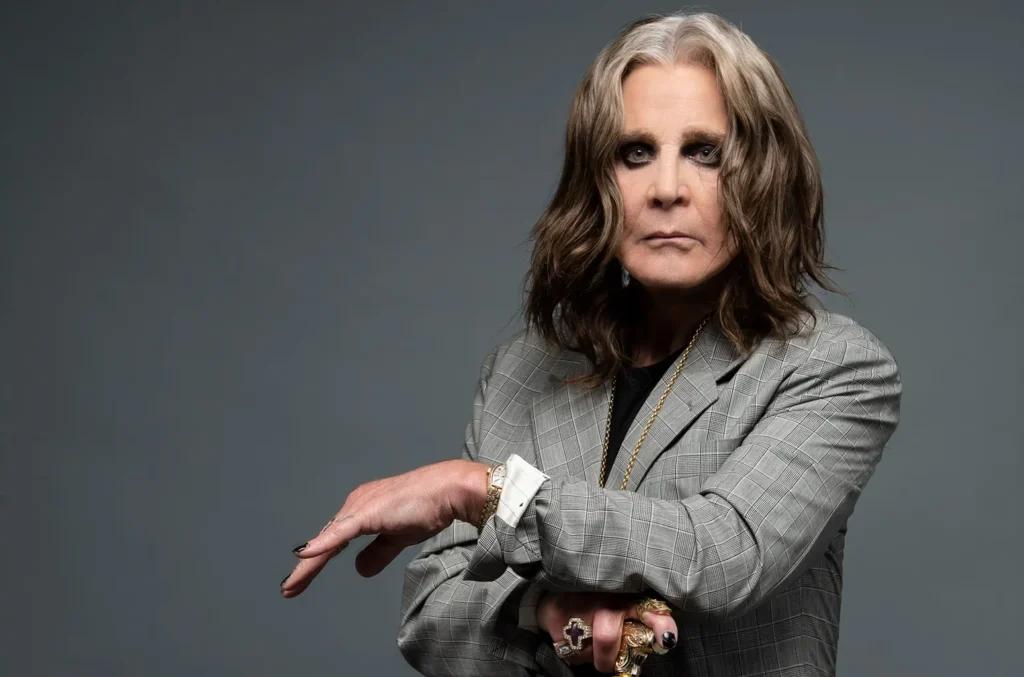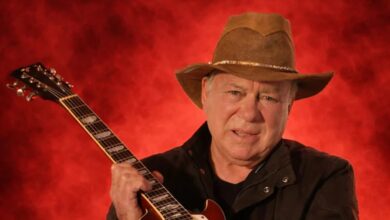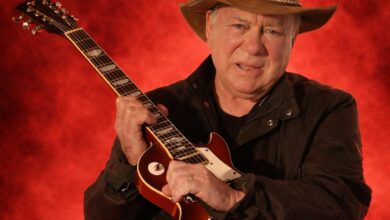Ozzy Osbourne’s Death Certificate Lists Heart Attack as Official Cause of Death

Ozzy Osbourne’s passing marked the end of an era in rock and roll, sending shockwaves through the music world and leaving countless fans mourning the loss of a true legend. His journey, defined by relentless creativity and unyielding passion, had inspired generations, and the news of his death felt deeply personal for millions across the globe. Friends, family, and fans alike reflected on the impact he’d made—not just as a musician, but as a cultural icon who helped shape the sound and spirit of heavy metal.
Throughout his life, Ozzy faced an extraordinary number of challenges, but his resilience set him apart. He had long battled health complications, with Parkinson’s disease being one of the most publicized struggles in his final years. Despite this, he continued to push boundaries, appearing on stage and connecting with fans until just weeks before his passing. The determination he displayed was a testament to his enduring love for music and his audience.
His death certificate officially listed the cause as a heart attack, with contributing factors including coronary artery disease and complications from Parkinson’s disease. These underlying health conditions had been part of Ozzy’s life for years, but he rarely let them overshadow his desire to perform. Those close to him described how he continued to rehearse, record, and dream about future projects, even as his body grew weaker.
In the days leading up to his final concert, Ozzy was surrounded by family and close friends, many of whom later spoke of the deep sense of peace he found during his last weeks. The “Back to the Beginning” concert, held in Birmingham, was a powerful sendoff—a chance for Ozzy to reconnect with Black Sabbath, his original bandmates, and to offer one last, emotional performance to fans who had followed him for decades. The memory of that night will live on in the hearts of those who were lucky enough to be there.
Ozzy’s relationship with his family, especially his wife Sharon and their children, was a source of strength in his later years. They stood by his side through hospital stays, treatments, and difficult decisions, always encouraging him to keep fighting. Their love and support gave him the courage to keep going, even on the days when his illness seemed overwhelming. In his final moments, he was surrounded by the people who mattered most to him.
For fans around the world, the loss of Ozzy Osbourne was more than just the end of a musical chapter—it was the closing of a lifelong friendship. His music had accompanied them through countless milestones, from rebellious teenage years to adulthood, providing comfort and inspiration. The announcement of his passing prompted an outpouring of grief and remembrance, as people shared their favorite songs and memories, ensuring his legacy would never fade.
Musicians from all corners of the industry paid tribute to Ozzy’s influence, recalling how his raw energy, theatricality, and honest storytelling had shaped the evolution of rock and metal. Many cited him as the reason they picked up an instrument or pursued a career in music, highlighting the ways in which his fearless approach broke down barriers and redefined what it meant to be a performer.
The days following his death saw a surge in streams and sales of his music, with fans revisiting the albums and performances that had defined their lives. Classic tracks like “Crazy Train,” “Bark at the Moon,” and “Mama, I’m Coming Home” found new audiences, as younger generations discovered the magic of Ozzy’s voice and songwriting. His legacy, already vast, continued to grow as the world celebrated everything he’d achieved.
Ozzy’s funeral, a private affair attended by close family and friends, was marked by deep emotion and respect. Those present spoke of the warmth and humor he brought to every room, remembering the kindness and generosity that often contrasted with his wild public persona. It was a chance for loved ones to say goodbye, honoring the man behind the myth.
In the weeks that followed, public memorials and tribute events sprang up around the globe. Fans gathered in cities from Birmingham to Los Angeles, sharing stories, singing his songs, and finding comfort in community. These gatherings demonstrated the profound sense of connection Ozzy had built over his lifetime—a bond that stretched across cultures, generations, and borders.
His passing also sparked renewed appreciation for the early days of Black Sabbath, the band that changed music history forever. Critics and fans revisited the groundbreaking albums that defined heavy metal, reflecting on the partnership between Ozzy, Tony Iommi, Geezer Butler, and Bill Ward. The power of those records, and Ozzy’s unmistakable voice, continued to resonate long after his death.
Documentaries, interviews, and retrospectives soon followed, with networks and streaming services dedicating special programming to Ozzy’s legacy. Journalists, historians, and fellow artists offered their perspectives, painting a portrait of a complex, passionate, and endlessly creative individual whose influence could not be overstated. Each tribute added new depth to the story of a life fully lived.
As time passed, fans found solace in revisiting old concerts and unreleased recordings, uncovering new layers of meaning in songs they’d heard a thousand times before. Social media became a space for collective mourning and celebration, with musicians and listeners alike sharing their personal tributes. The sense of loss was real, but so too was the gratitude for everything Ozzy had given.
Ozzy’s final years, though marked by illness, were also filled with moments of joy and reflection. He remained a presence in the lives of those who loved him, never losing his trademark sense of humor or rebellious spirit. His candid interviews and social media posts revealed a man at peace with his journey, proud of the legacy he would leave behind.
For all the pain of his passing, there was comfort in knowing that Ozzy’s story would not end with his death. His influence lived on in every riff, lyric, and stage performance he inspired. As new artists rise and old fans revisit his catalogue, the spirit of Ozzy Osbourne continues to echo through the halls of rock history—forever a legend, never to be forgotten.
Even as the world moves forward, the mark Ozzy left remains indelible. His voice, energy, and larger-than-life persona will forever be etched in the memories of those who loved him. The final chapter of his life may have closed, but the story he wrote—filled with defiance, creativity, and a relentless drive to connect—will endure, inspiring countless others for generations to come.





